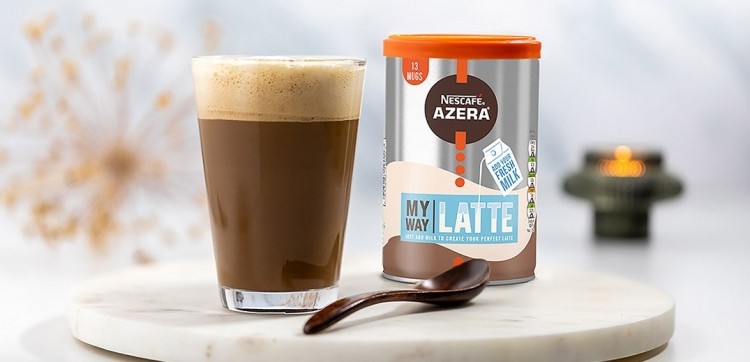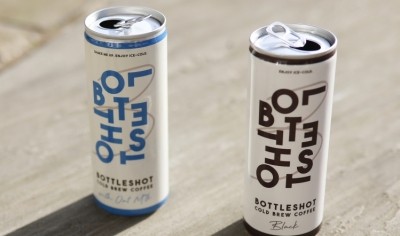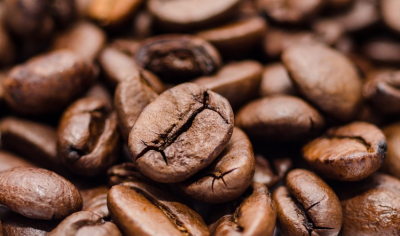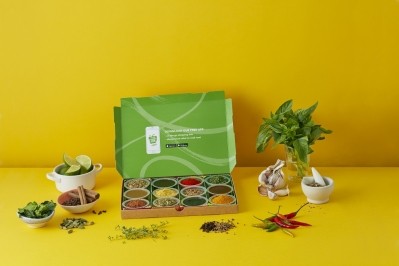Nestlé: Nescafé and Starbucks among top performing brands

The Europe zone had recorded its best organic growth in the past five years (2.9%), said Nestlé, which has just announced plans to launch a vegan version of its KitKat brand in the UK later this year.
In its full-year statement for 2020, the company reported: "Each region saw broad-based positive growth, with strong momentum in Russia, Germany, the UK and Israel. The Zone continued to see market share gains, led by pet food, portioned and soluble coffee, as well as vegetarian and plant-based food products."
Coffee, Purina PetCare and culinary were the business categories delivering the most growth. "Coffee was supported by strong demand for Nescafé and Starbucks products," stated Nestlé, with the company having bought the rights to sell Starbucks coffee under license in 2018. "Purina PetCare reported sustained momentum, supported by premium brands, successful innovation and strong demand in e-commerce and specialist channels. Felix, Purina Pro Plan, Tails.com and the newly acquired Lily's Kitchen all grew at a strong double-digit rate.
Culinary
"Culinary saw elevated consumer demand across all segments, particularly for Maggi and plant-based products. Garden Gourmet [which pulled out of mainstream UK grocery in 2019] reported almost 60% growth, supported by new product launches and continued distribution expansion across its 20 markets.
"Infant nutrition posted positive growth, supported by Russia and the Middle East. Growth in confectionery was almost flat, as increased demand for baking products and tablets was offset by sales declines in impulse and gifting products. Water gained market share, but recorded negative growth due to a sales decrease in the out-of-home channels."
Nestlé Professional, the wing of the business targeting foodservice, leisure, hospitality and catering saw a significant sales decline.
The numbers
The Europe, the Middle East and North Africa zone chalked up overall sales of 20.2bn CHF, down from 21.5bn CHF in the previous year.
The entire group achieved sales of 84.3bn CHF, down 8.9% on the 2019 figure of 92.6bn CHF. Underlying trading operating profit decreased by 8.3% to 14.9bn CHF.
Summing up the impact of the pandemic on the whole business, Nestlé stated: "Demand for at-home consumption, trusted brands and products with nutritional benefits was strong. Purina PetCare, dairy, coffee at-home and Nestlé Health Science reported robust growth. Sales in confectionery and water decreased, reflecting their high exposure to out-of-home channels and on-the-go consumption.
"Retail sales posted high single-digit organic growth, reflecting elevated demand for at-home consumption. Sales in out-of-home channels declined significantly."
"E-commerce sales grew by 48.4%, reaching 12.8% of total group sales. Coffee, Purina PetCare and Nutrition & Health Science were the main growth contributors, with strong momentum in all other categories."
Globally Nestlé's pet food business delivered the highest organic sales growth, followed by milk products and ice cream. Milk products and ice cream delivered the highest growth in trading underlying operating profit margin for the company, followed by prepared dishes and cooking aids, then pet food, while margins shrank for confectionery, water and nutrition and health science.
'Year of hardship'
Mark Schneider, Nestlé chief executive, said: "2020 was a year of hardship for so many, yet I am inspired by the way it has brought all of us closer together. In this unprecedented environment, we achieved our third consecutive year of improvement in organic growth, profitability and return on invested capital.
"The global pandemic did not slow us down. Our nutrition expertise, digital capabilities, decentralised structure and innovation engine allowed us to adapt quickly to changing consumer behaviours and trends. We advanced our portfolio transformation, continued to build Nestlé Health Science into a nutrition powerhouse and expanded our presence in direct-to-consumer businesses.
"At the same time, we remained focused on sustainability and set out our path to achieve net zero greenhouse gas emissions by 2050. This journey is expected to support future growth and be earnings neutral - it will generate value for society and our shareholders. Looking to 2021, we expect continued improvement in organic growth, profitability and capital efficiency in line with our value creation model."
















